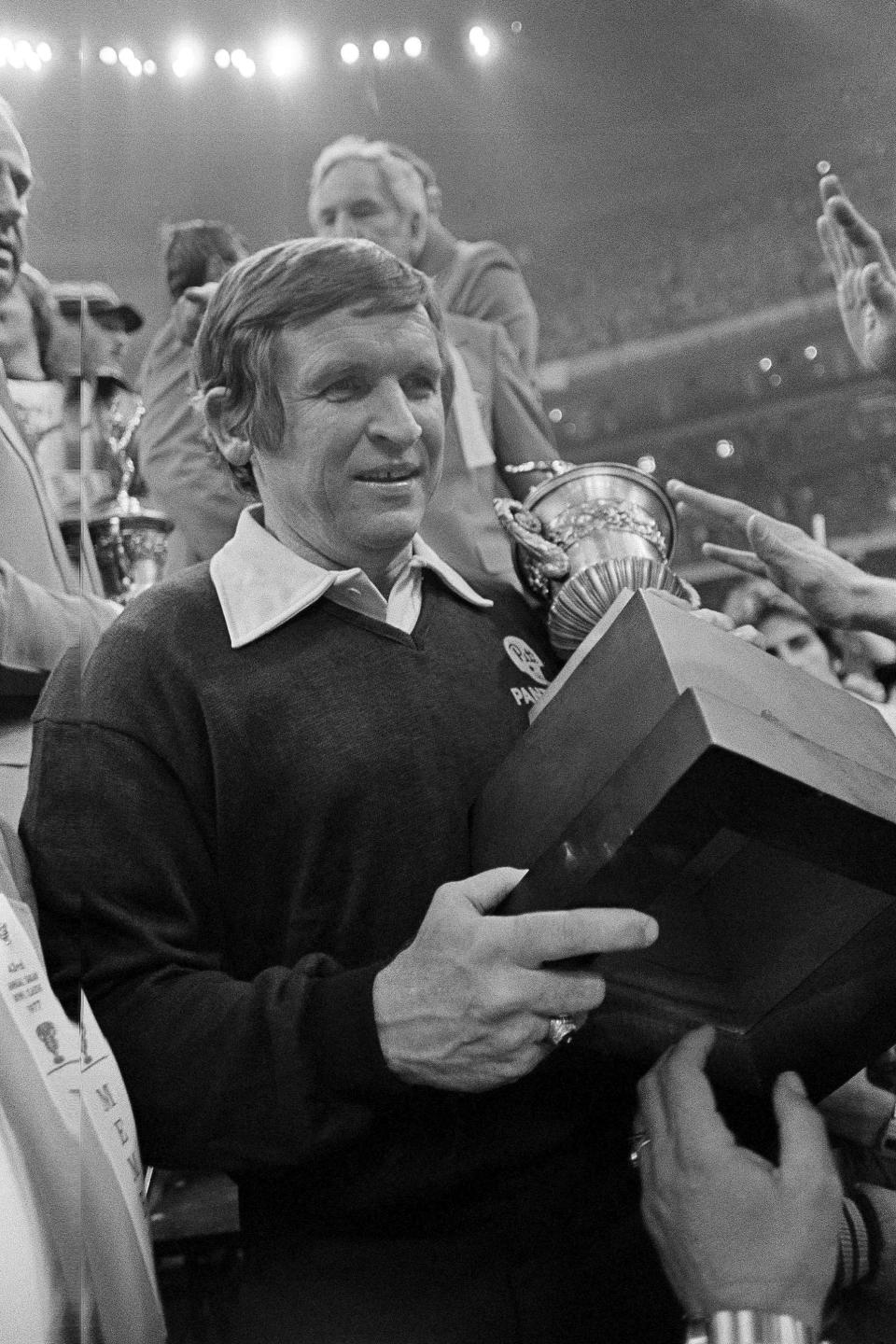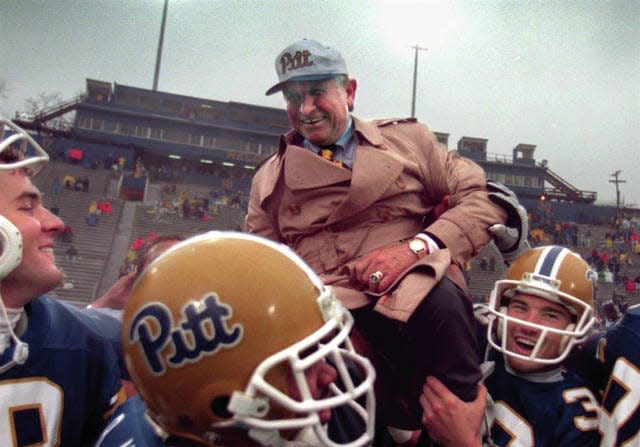Pittsburgh was Majors' second home, and they carry the torch for him still | Mike Strange
It’s a minuscule group of college football fans that cheers both for Tennessee and Pittsburgh. I’m thinking of one of them I wish was still around this week as the Vols visit the Panthers.
Johnny Majors told me several times he was a man with two homes.
One was Tennessee, where he grew up, was both an All-America single-wing tailback and SEC-championship winning coach at the state university in Knoxville.
The other was Pittsburgh. That’s where his coaching star blazed brightest in a 1976 national championship season. That’s where he returned after Tennessee broke his heart in 1992.

Majors, who died in 2020, is a lock on the Mount Rushmore of University of Tennessee football heroes. He was a two-time SEC player of the year. His senior year, 1956, he was Heisman Trophy runner-up. Returning as head coach in 1977, he won three SEC titles and 116 games before things ended badly in 1992.
He was no less a hero in Pittsburgh, at least to the city’s college football fans. He took over a woeful program in 1973, one coming off a 1-10 season. His first team went 6-5-1, the school’s first winning record in a decade.
His second team won seven games, his third team eight. The ’76 Panthers won 'em all, clinching the national title.

“That,’’ he told me in 2010, “was the most exciting time in my career as far as four years of continuous success, rising up the ranks. That was at Pittsburgh.’’
Then Tennessee called him home. Some family members advised him to stay put, remain a hero in Pittsburgh, where college football is entertainment in a city that worshiped the Steelers and Pirates. Back in Tennessee, it would be life or death.
But Majors came home. It took longer than expected, but he won an SEC title in 1985 and two more, in 1989 and ’90. The controversy of the ’92 coaching switch to Phillip Fulmer still divides the older swath of the UT fan base.
Wounded, Majors returned to Pittsburgh for the 1993 season. He never regained the magic touch, stepping aside after four years and a 12-32 record.
The second act at Pitt, while a disappointment, did not undermine the admiration for his first stint. But it did impact Majors’ resume. It was one rebuilding bridge too far.
Every job Majors took on was rebuild – Iowa State in ’68, Pitt in ’73 and UT in '77. His career winning percentage was .601 after Tennessee. The cutoff for coaching eligibility for the College Football Hall of Fame – Majors was already inducted as a player – is .600. The encore at Pitt dropped him to .572.
Majors eventually moved back to Knoxville and was embraced. His No. 45 was retired in 2012.
By then, I had visited Pittsburgh on a basketball trip and made time to explore his legacy.
The defining Majors memorabilia display isn’t in Knoxville, rather in the Johnny Majors Room at the Pittsburgh Athletic Association. Majors told me beforehand to look up a fellow named Art, who would show me around.
Sure enough, I found Art and announced my mission.
“That was the biggest rip-off in Heisman Trophy history,’’ said Art, by way of greeting.
My initial thought went to Peyton Manning and was about to say so, when Art followed up, shaking his head: “They gave it to Paul Hornung.’’
They still have Johnny’s back in Pittsburgh.
“It was a place,” Majors told me, “that there were two times I needed them. And I think they needed me.’’
Two homes, going head-to-head this week.
Mike Strange is a former writer for the News Sentinel. He currently writes a weekly sports column for Shopper News.
This article originally appeared on Knoxville News Sentinel: Johnny Majors: Pittsburg was his second home

